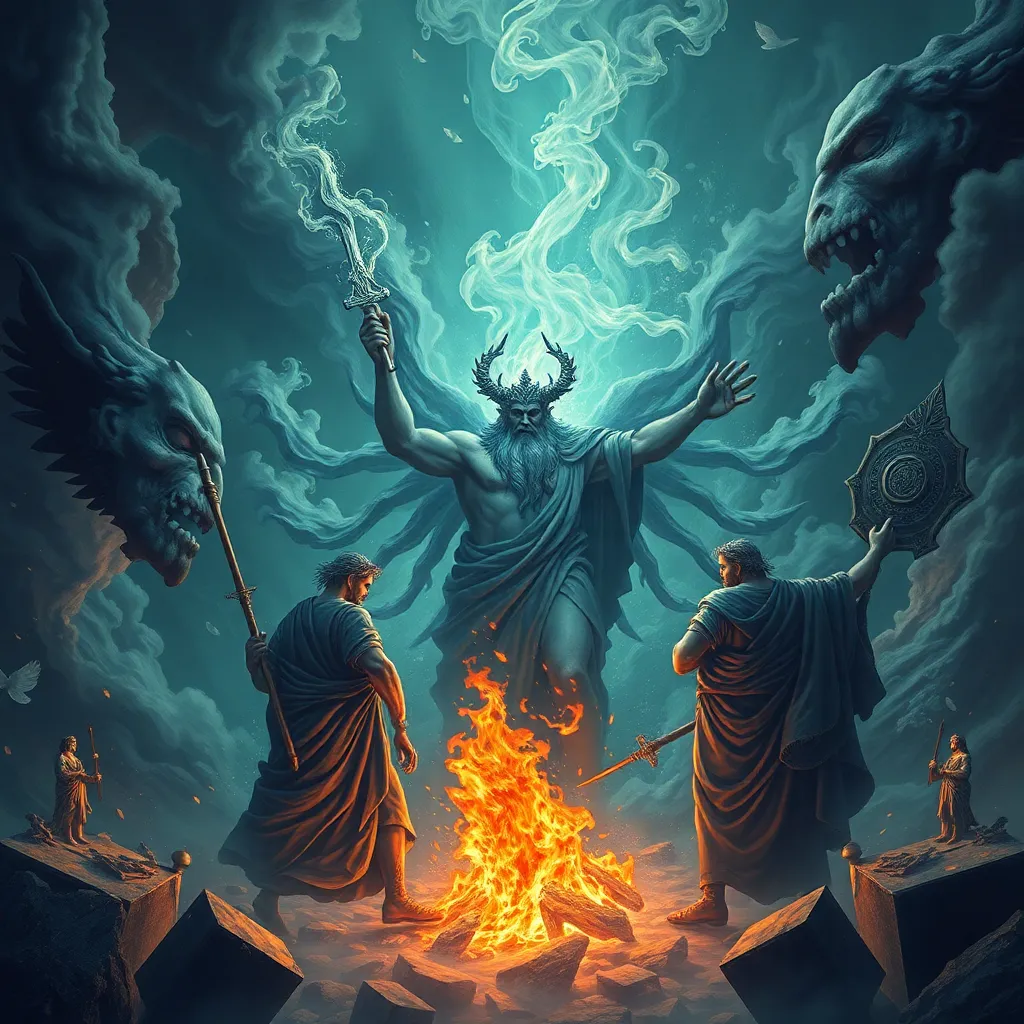Hades and the Influence of Fate on Greek Heroes
I. Introduction
In the rich tapestry of Greek mythology, Hades stands as a pivotal figure, representing not only the god of the underworld but also a complex symbol of mortality and the afterlife. As we delve into the intricate relationship between Hades and the concept of fate, we uncover how these elements shape the narratives of Greek heroes.
Fate, or Moira, plays a crucial role in ancient Greek thought, dictating the destinies of gods and mortals alike. This article aims to explore the interplay between Hades and fate, examining how they influence the journeys of legendary Greek heroes.
II. Understanding Hades: The God of the Underworld
Hades, the brother of Zeus and Poseidon, rules over the underworld, a realm that serves as the final resting place for souls. His significance extends beyond mere governance of the dead; he embodies the inevitability of death and the mysteries of the afterlife.
The realm of Hades is not merely a place of punishment; it is a complex domain where souls are judged and assigned to various fates. This duality enhances the understanding of mortality in Greek culture.
- Hades is often misunderstood as a malevolent figure, but he is more accurately a guardian of the dead.
- His realm includes various regions, such as Elysium for the virtuous and Tartarus for the wicked.
- Hades’ association with wealth and the earth reflects his role as a provider of fertility and abundance.
III. The Nature of Fate in Greek Mythology
Fate, or Moira, is a central concept in Greek mythology, representing the predetermined course of events in a person’s life. The Moirai, or Fates, are three sisters who spin, measure, and cut the thread of life, symbolizing the inescapable nature of destiny.
The interplay between fate and free will creates a fascinating tension within mythological narratives. Heroes often grapple with their destinies, attempting to assert their will against the forces of fate.
IV. Hades’ Influence on the Fate of Heroes
Death is an inevitable aspect of the human experience, and for Greek heroes, the acceptance of this truth often defines their journeys. The awareness of mortality adds depth to their heroism, as they confront their fates with courage and determination.
Notable heroes such as Achilles and Odysseus illustrate this struggle with fate:
- Achilles: Forewarned of his fate to die young in the Trojan War, he chooses glory over a long, uneventful life.
- Odysseus: His journey home from Troy is fraught with challenges that force him to confront preordained outcomes.
Encounters with Hades or references to the underworld frequently shape the narratives of these heroes, emphasizing the inextricable link between life and death.
V. Case Studies of Greek Heroes and Their Fateful Encounters
Several Greek heroes have compelling stories that illustrate their encounters with Hades and the concept of fate:
A. Persephone and the Cycle of Life and Death
The myth of Persephone, abducted by Hades to become queen of the underworld, encapsulates the cyclical nature of life and death. Her dual existence brings forth the changing seasons and the idea of rebirth.
B. Orpheus and the Quest to Defy Fate
Orpheus, armed with his enchanting music, ventures into the underworld to retrieve his beloved Eurydice. His story highlights the futility of trying to alter fate, as he ultimately loses her due to his inability to follow Hades’ decree.
C. Heracles and His Labors as a Form of Fate Acceptance
Heracles’ twelve labors can be seen as a response to fate. Each labor represents a challenge that he must face, demonstrating his strength and perseverance while ultimately accepting the constraints of his destiny.
VI. The Role of Prophecy and Omens
Prophecies and omens play significant roles in the narratives of Greek heroes, often guiding them toward their fated outcomes:
- Heroes receive prophecies that outline their destinies, influencing their choices and actions.
- Omens serve as signals, warning heroes of impending doom or guiding them on their journeys.
The paradox of knowing one’s fate adds complexity to these stories, as heroes grapple with the desire to change their destinies while being bound to them.
VII. The Afterlife: Hades’ Domain and Its Symbolism
The portrayal of the afterlife in Greek mythology reflects cultural values surrounding death and legacy. Hades’ domain symbolizes the finality of life and the importance of honor and remembrance:
- The underworld is depicted not just as a place of gloom, but also as a realm where souls find peace.
- Understanding Hades influences how heroes are remembered, with their deeds resonating through time.
In Greek culture, the relationship between death and honor is paramount, emphasizing that true heroism is often defined by one’s legacy.
VIII. Conclusion
The intricate relationship between Hades, fate, and Greek heroes reveals profound themes that resonate through mythology. Heroes face their destinies with courage, navigating the complexities of fate and free will, while Hades serves as a constant reminder of mortality.
These themes continue to shape modern storytelling, reflecting humanity’s enduring fascination with the balance of fate and free will. Ultimately, the hero’s journey in Greek mythology serves as a timeless exploration of the human condition, illustrating the complex dance between destiny and choice.




